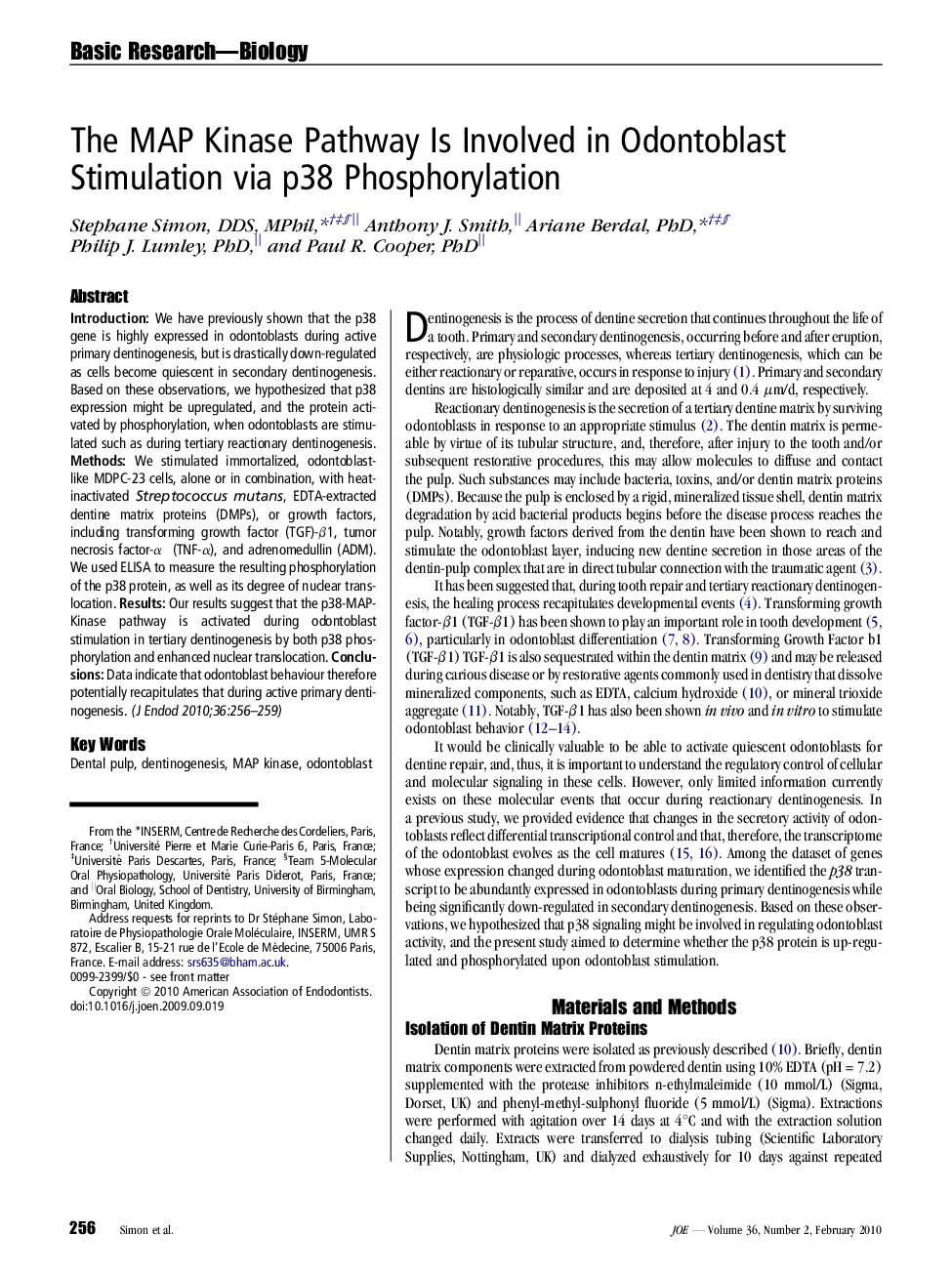| Article ID | Journal | Published Year | Pages | File Type |
|---|---|---|---|---|
| 3149334 | Journal of Endodontics | 2010 | 4 Pages |
IntroductionWe have previously shown that the p38 gene is highly expressed in odontoblasts during active primary dentinogenesis, but is drastically down-regulated as cells become quiescent in secondary dentinogenesis. Based on these observations, we hypothesized that p38 expression might be upregulated, and the protein activated by phosphorylation, when odontoblasts are stimulated such as during tertiary reactionary dentinogenesis.MethodsWe stimulated immortalized, odontoblast-like MDPC-23 cells, alone or in combination, with heat-inactivated Streptococcus mutans, EDTA-extracted dentine matrix proteins (DMPs), or growth factors, including transforming growth factor (TGF)-β1, tumor necrosis factor-α (TNF-α), and adrenomedullin (ADM). We used ELISA to measure the resulting phosphorylation of the p38 protein, as well as its degree of nuclear translocation.ResultsOur results suggest that the p38-MAPKinase pathway is activated during odontoblast stimulation in tertiary dentinogenesis by both p38 phosphorylation and enhanced nuclear translocation.ConclusionsData indicate that odontoblast behaviour therefore potentially recapitulates that during active primary dentinogenesis.
